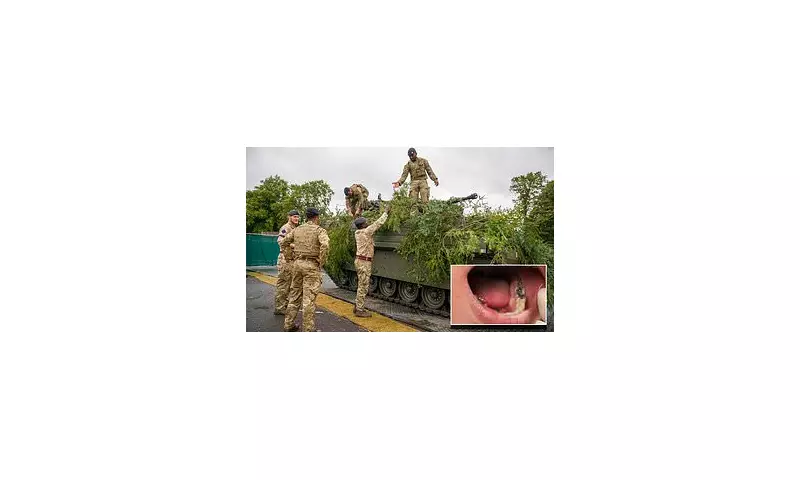
In what's being called the most radical overhaul of military fitness assessment in decades, the British Army has introduced a startling new requirement for recruits: demonstrating physical endurance by having dogs gnaw on protective sleeves clenched between their teeth.
The controversial canine-assisted drill, designed to test grip strength, pain tolerance and mental fortitude under pressure, has sparked immediate debate among defence experts and training professionals.
The Jaw-Clenching Reality of Modern Recruitment
According to military insiders, the new test forms part of an enhanced fitness regime aimed at preparing soldiers for the extreme physical challenges of modern combat situations. Recruits are required to wear specialised protective sleeves while highly trained military working dogs apply controlled pressure.
"This isn't about subjecting recruits to unnecessary risk," explained a senior training officer who spoke on condition of anonymity. "It's about simulating real-world scenarios where soldiers might need to maintain grip strength under duress. The canine element adds an unpredictable variable that tests mental resilience alongside physical capability."
Safety Concerns and Ethical Questions
Despite assurances of rigorous safety protocols, the new training method has raised eyebrows among defence analysts and animal welfare organisations. Critics question whether the potential psychological impact on both recruits and animals has been adequately assessed.
Dr. Eleanor Vance, a military psychologist not involved in the programme, expressed concern: "While innovation in training is necessary, introducing animals into fitness testing creates variables that are difficult to control. The potential for heightened anxiety among recruits unfamiliar with dogs, and stress on the animals themselves, requires careful consideration."
Military Defence of Controversial Methods
The Ministry of Defence has defended the programme, emphasising the comprehensive safety measures in place. All dogs involved are specially trained military working animals with extensive experience in controlled exercises. Recruits undergo thorough briefing sessions and wear multiple layers of protective gear.
"Our training methods are continually evaluated and developed to ensure they remain effective and safe," stated a Defence spokesperson. "This particular assessment has undergone extensive trialling and meets all our stringent safety standards while providing valuable data on recruit suitability for frontline roles."
The Future of Army Training
This development comes as the British Army modernises its recruitment and training processes to address changing warfare techniques and operational requirements. The integration of unconventional methods reflects a broader shift towards preparing personnel for asymmetric threats and high-pressure combat environments.
As the debate continues, one thing remains clear: the path to becoming a British Army soldier just became significantly more challenging—and toothier—than ever before.





